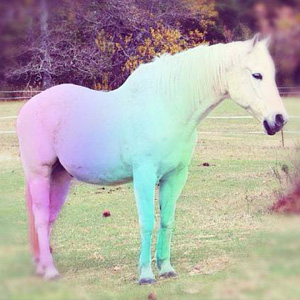I spent the five happiest years of my life in a morgue. As a forensic scientist in the Cleveland coroner’s office I analyzed gunshot residue on hands and clothing, hairs, fibers, paint, glass, DNA, blood and many other forms of trace evidence, as well as crime scenes. Now I'm a certified latent print examiner and CSI for a police department in Florida. I also write a series of forensic suspense novels, turning the day job into fiction. My books have been translated into six languages.
Large paper bag. Casting agents usually warm up so that might create moisture inside a plastic container or bag. A cardboard box might be good as well to give it enough support to keep it from cracking.
I would try oblique lighting—try laying the piece down as flat as possible and then hold a flashlight to the side so the light beam travels across the piece instead of down onto it. Adjust the light to where it’s the most helpful. With the ziploc bag you might also put a piece of dark paper inside it to increase the constraint. That’s all I can think of since I’m not an expert in questioned documents. Best of luck!
That's called the 'CSI Effect' and it can be a problem for juries to have unrealistic expectations. One instructor described it as "Juries don't know as much as they think they know, but they really do know a lot more than they used to know."
I'll email you.
Fashion Forecaster
 Are people in the fashion world as rotten as those in Devil Wears Prada?
Are people in the fashion world as rotten as those in Devil Wears Prada?
Birthday Party Clown
 OK seriously, how DOES the clown car thing work?
OK seriously, how DOES the clown car thing work?
Beauty Queen
 Is there truth to the stereotypes of “pageant parents?”
Is there truth to the stereotypes of “pageant parents?”
Sure, email me at lisa-black@live.com.
titles and job requirements aren't uniform, so the only way to know is to call the crime labs in your area or whereever you might be interested in working and ask them. You can also go on the websites for professional organizations such as the American Academy of Forensic Sciences and check out their job vacancy postings and see what the various positions require. Good luck.
It depends on what you're talking about--was what contaminated with what? Lots of things can be contaminated with things without results being affected. Take blood, you can mix blood with paint or dirt or maybe oil or types of soap and that won't affect the DNA profile. If you mix it with bleach or other blood, it will. So if you had, say, heroin, and it gets mixed with fingerprint powder or cotton fibers, it's still going to test as heroin. If you mix it with cocaine, maybe it won't. (Controlled substances are not my field.) So 'contamination' is not a one-size fits-all word.
-OR-
 Login with Facebook
Login with Facebook (max 20 characters - letters, numbers, and underscores only. Note that your username is private, and you have the option to choose an alias when asking questions or hosting a Q&A.)
(A valid e-mail address is required. Your e-mail will not be shared with anyone.)
(min 5 characters)
By checking this box, you acknowledge that you have read and agree to Jobstr.com’s Terms and Privacy Policy.
-OR-
 Register with Facebook
Register with Facebook(Don't worry: you'll be able to choose an alias when asking questions or hosting a Q&A.)